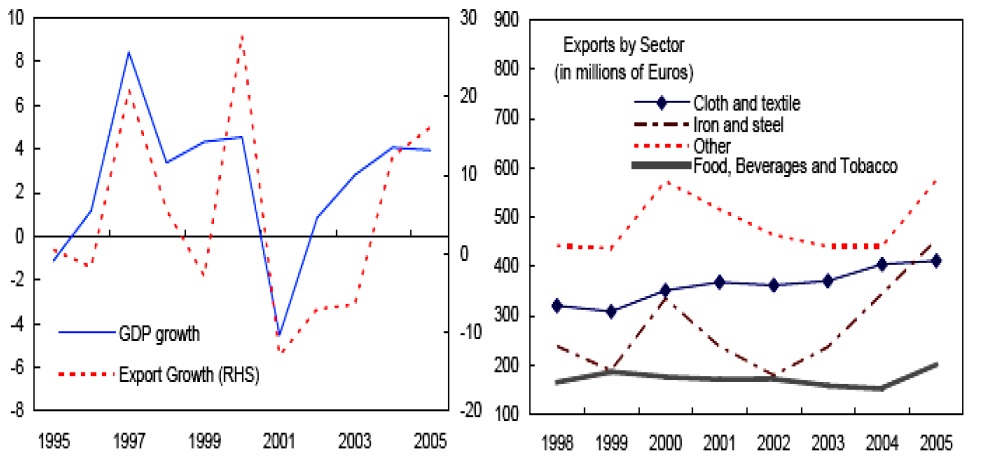First of all, it is relevant to note that Macedonia crisis is a consequence of the previous failure of Kosovo. Indeed, due to the Kosovar conflict, a massive movement of Albanian refugees settled in the north of Macedonia. It created an ethnic population that grew and faced with the Slave majority.
With regard to security and the political apparatus, the government was not able to maintain a sustainable security in the north of Macedonia. It led to a rise in crimes and corruption and therefore the delegitimization of the state, especially due to the inability to protect against violence.
Moreover, the Macedonian democratic system was seriously questioned. The Albanian minority rights were undermined (Albanian was not an official language) and Albanians were not represented in the civil administration. It created a massive corruption and discrimination. The rule of law was not respected anymore. The failure of the state created a deterioration of the public services which was unable to provide the essential political goods.
Because of the security failure, the economic situation collapsed. The macroeconomic stability failed: rise in unemployment, economic decline as measured as GDP, drop in foreign investment, and inflation.
All these factors led to the intervention of external actors to stabilize Macedonia in a situation of failure.
Graph 4.1 Export growth and Exports 1995-2005
 Source: Macedonia State Statistical Office
Source: Macedonia State Statistical Office
